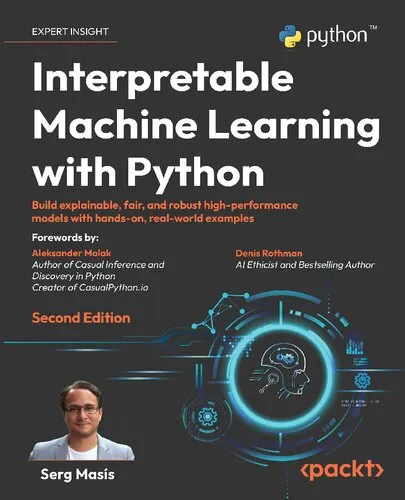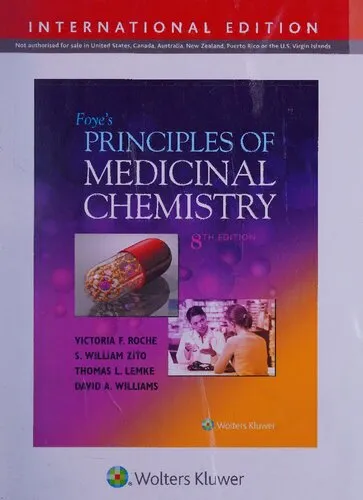Iterative methods for solving linear systems
4.4
Reviews from our users

You Can Ask your questions from this book's AI after Login
Each download or ask from book AI costs 2 points. To earn more free points, please visit the Points Guide Page and complete some valuable actions.Related Refrences:
"Iterative Methods for Solving Linear Systems" is a foundational text that has garnered significant attention among mathematicians, computer scientists, and engineers alike. Authored by Anne Greenbaum, this book delivers a thorough exploration of iterative methods for efficiently solving large linear systems, providing crucial insights into modern computational and applied mathematics.
Detailed Summary of the Book
In this book, Anne Greenbaum walks readers through the core principles, theory, and application of iterative techniques for solving linear systems. These methods, essential for tackling large-scale computational problems, are particularly relevant in scientific computing and numerical simulations. The text begins with an introduction to systems of linear equations and progresses toward increasingly sophisticated methods, including Krylov subspace methods, preconditioned techniques, and advanced convergence theories. Each chapter is tailored to balance rigorous mathematical derivations with practical explanations and illustrative examples.
The initial chapters lay the groundwork by discussing the drawbacks of direct solvers like Gaussian elimination for large, sparse systems. The book then transitions into iterative methods like Jacobi and Gauss-Seidel, showcasing their utility in specific scenarios. Krylov subspace methods, including the conjugate gradient method, GMRES, and BiCGSTAB, receive detailed treatment, emphasizing computational efficiency and robustness. Furthermore, Greenbaum incorporates discussions on preconditioning to enhance algorithm performance. Mathematical properties such as matrix spectra, eigenvalues, and convergence rates are addressed concisely yet comprehensively. By the conclusion, readers attain a robust understanding of iterative methods and their place in solving complex numerical problems.
Key Takeaways
- The efficiency of iterative methods compared to direct methods for solving sparse or large-scale linear systems.
- An in-depth explanation of convergence behavior and how preconditioning can significantly improve performance.
- A detailed introduction to Krylov subspace methods, such as conjugate gradient, GMRES, and BiCGSTAB, with clear guidance on when to use them.
- Practical examples to connect theory with applications, such as computational fluid dynamics, structural engineering, and data science.
- A focus on numerical stability and how computational errors are handled in iterative solvers.
Overall, the text equips readers with both theoretical knowledge and practical skills to confidently implement iterative methods for solving large linear systems, ensuring a balance between mathematics and computational applications.
Famous Quotes from the Book
"Iterative methods are an indispensable necessity, not a luxury, for solving the systems that arise in modern computational practice."
"The key to the success of any iterative method lies in understanding the underlying structure of the linear system and carefully choosing the right approach."
"Preconditioning is as much an art as it is a science—often the difference between success and failure in solving real-world systems."
Why This Book Matters
"Iterative Methods for Solving Linear Systems" holds a place of great importance in the fields of applied mathematics and computational science. The computational challenges of today demand algorithms capable of handling vast datasets and complex simulations—tasks that traditional direct methods are too slow or resource-intensive to tackle. Iterative methods have become essential due to their scalability and efficiency, and this book excels in explaining them in a pedagogically sound manner.
Beyond providing mathematical rigor, this book emphasizes practical application, bridging the gap between theoretical mathematics and its implementation in real-world software. It is highly suitable for graduate students, researchers, and professionals seeking to deepen their understanding of iterative solvers, particularly in contexts like machine learning, physical simulations, and economic modeling. Even experienced practitioners will find insightful discussions on optimization and convergence enhancements, making it a valuable resource on their bookshelf.
Anne Greenbaum’s ability to demystify advanced mathematical topics and present them in a clear, comprehensible format ensures the book’s continued relevance and popularity. Whether you are new to iterative solvers or an expert in numerical analysis, this book empowers readers to tackle increasingly complex computational challenges with confidence and precision.
Free Direct Download
You Can Download this book after Login
Accessing books through legal platforms and public libraries not only supports the rights of authors and publishers but also contributes to the sustainability of reading culture. Before downloading, please take a moment to consider these options.
Find this book on other platforms:
WorldCat helps you find books in libraries worldwide.
See ratings, reviews, and discussions on Goodreads.
Find and buy rare or used books on AbeBooks.
1245
بازدید4.4
امتیاز0
نظر98%
رضایتReviews:
4.4
Based on 0 users review
Questions & Answers
Ask questions about this book or help others by answering
No questions yet. Be the first to ask!
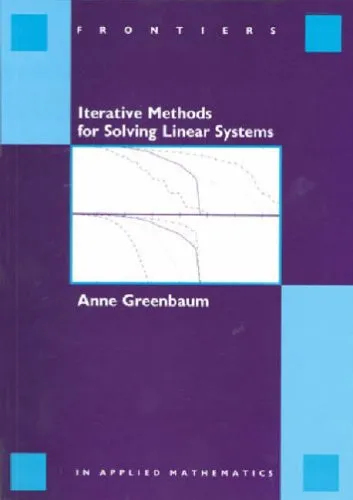
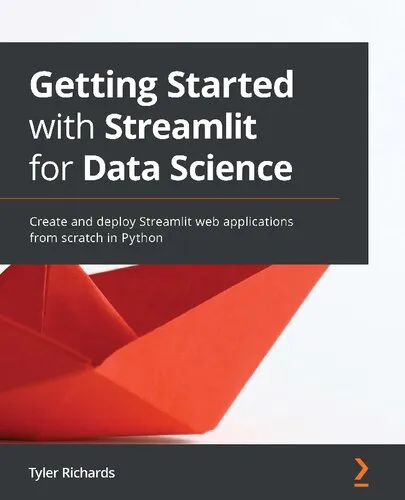

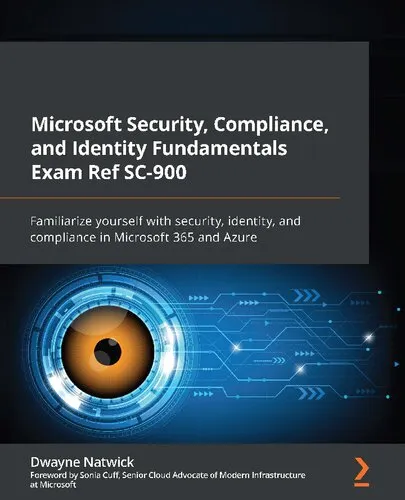

![The Ultimate iOS Interview Playbook: Conquer Swift, frameworks, design patterns, and app architecture [Team-IRA]](https://s3.refhub.ir/images/thumb/The_Ultimate_iOS_Interview_Playbook__Conquer__29925.webp)

